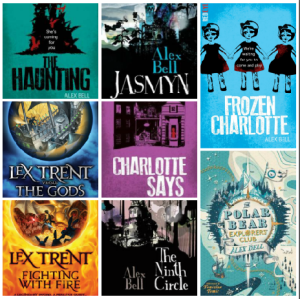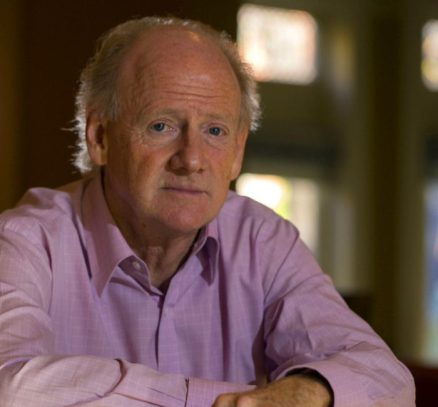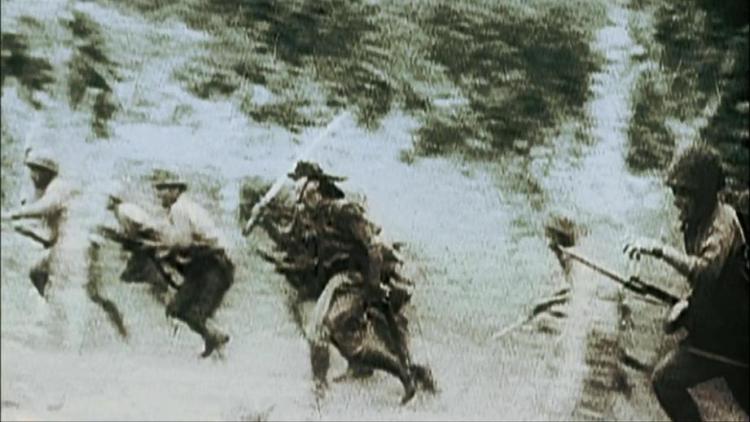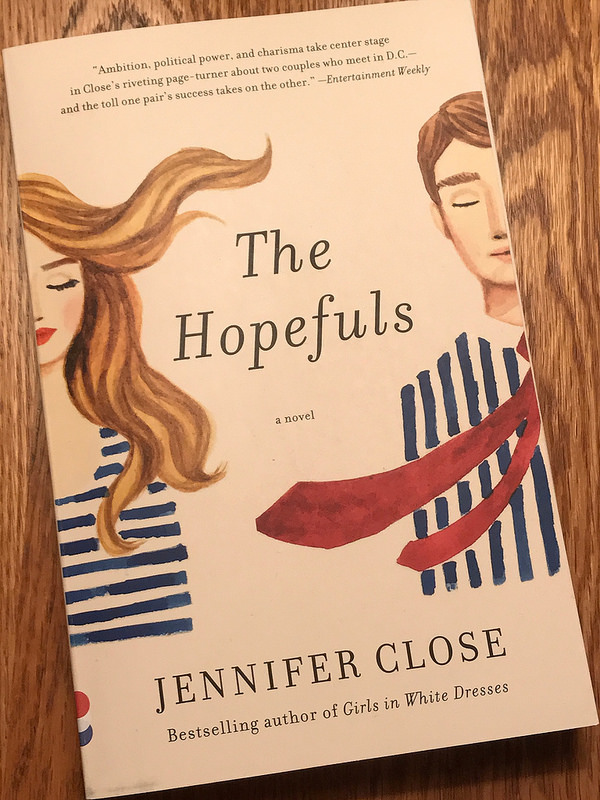I recently picked up a couple of older Australian YA novels from an op shop, and reading them was an interesting experience. It got me wondering about why certain books (and naturally, films and television shows) feel dated when you read them well after their original publication dates, when others can feel just as current and relevant as ever. As someone who reads a lot of realistic fiction I tend to appreciate the inclusion of pop-culture references, and the presence of technology in the stories I read, but how well will the novels that contain those very contemporary elements hold up in 15-20 years time?
Interestingly, it was the older of the two books I read that felt less dated. Published in 1995, Queen Kat, Carmel and St Jude Get a Life by Maureen McCarthy is about three girls from the same small town who move in together for their first year of uni in Melbourne. Aside from the abundant landline usage, there’s very little in this story to make it feel particularly out of date (once you get past the frankly magnificent cover, that is). In fact, the only moment I had where I was distinctly reminded that I was reading a book that’s older than me was when Carmel, one of the three protagonists, is registering for uni subjects and she has to go in and do it in person, rather than online like I did, actually at the time I was reading this book – which probably had a bit to do with why this scene stood out for me. Yet overall, Queen Kat, Carmel and St Jude felt fairly ambiguously dated – there were a few reminders that it was written in a time before everything was online and everyone had a mobile phone, but overall, it didn’t feel glaringly old.
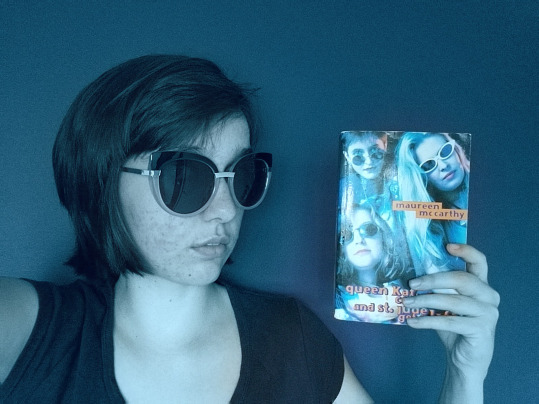 #squadgoals amirite
#squadgoals amirite
Despite being published some six years later, it was the other book I picked up, Raincheck on Timbuktu by Kirsten Murphy, that felt more dated. Reading this book, which was published in 2001 (hey, I exist now!) I was more conscious of how long ago it was set. Potentially, this is partially to do with the fact that I am able to recall, albeit vaguely, the early 2000s, and what they were like, whereas the mid-90s are completely foreign to me on account of me not being alive then. Maybe, to a certain extent, I’m able to relate to Raincheck on Timbuktu‘s time period through my own memories and as a result I’m more aware of how different and older the world of the book is to the world at the moment.
I’d be interested to see whether this feels more or less dated to someone, say, five years younger than me. Because I did feel quite a bit of childhood nostalgia reading this book (which was a kinda weird combo with the contemporary YA-ness of it), which I’m sure contributed to it feeling aged. Part of me feels like someone younger would be more aware of the age of this book, because its setting would be more unfamiliar, but perhaps that element would mean that the parts that made me nostalgic would go over their heads and therefore have less of an effect. Maybe I’m thinking too hard about this.
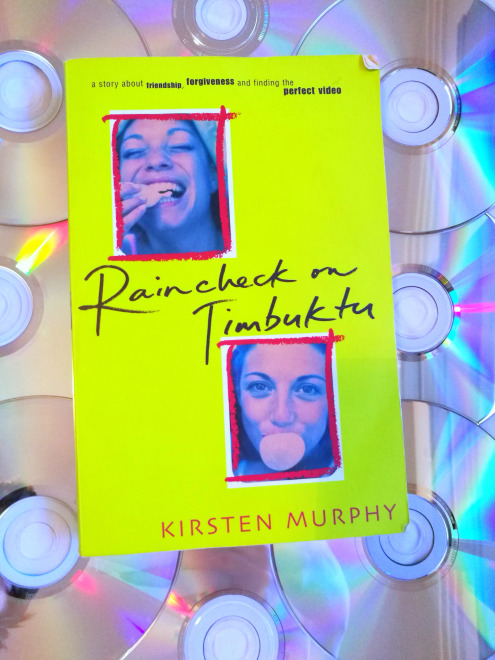 All those CDs I insist on still buying finally come in useful again
All those CDs I insist on still buying finally come in useful again
Neither Queen Kat, Carmel and St Jude nor Raincheck on Timbuktu had a massive number of pop culture references, or mentions of specific things that were going on in the world or the media at the time (aside from one brief allusion in Raincheck on Timbuktu about Brad Pitt and Jennifer Aniston still being a couple. That made me giggle a little bit). But in Raincheck on Timbuktu, the characters quite often spoke about going to the video store (RIP Blockbuster and Video Ezy, you are missed, kind of) and the story had more of a product of its time feel about it – and with the times a-changin’, this didn’t work so well in the book’s favour, sixteen odd years later.
Between cultural references and technology, what was a very current novel at the time, feels pretty dated after a few years. In a book I read many years ago, Girl, Missing by Sophie McKenzie, the main character gets a new phone and WOWZERS IT HAS A CAMERA! I think I read this book in about 2008, which was pre-smartphone but camera-phones were very much the norm, so this passage was a bit dated even then, but if a twelve-year-old kid were to read it today they’d be baffled by it (and I just realised that said twelve-year-old kid would would only be a year older than this book. AAAAAAAAAAAAA wut). Phones! That don’t take photos! What would be the point! It’s funny becuase Girl, Missing already feels considerably more familiar and modern than Raincheck on Timbuktu even though it’s only five years younger, but those mentions of now-obsolete technology make the book feel old.
 Was going to dig out my old flip phone because I thought it might be more appropriate for this one but I’m not sure if I even still own it. So old smartphone it is!
Was going to dig out my old flip phone because I thought it might be more appropriate for this one but I’m not sure if I even still own it. So old smartphone it is!
I haven’t even touched on books that are older still, where the societal values are drastically different. But I feel like that’s a slightly different conversation.
I always appreciate it when I read a novel and it contains cultural references and I guess, the acknowledgement that (in the case of YA) teens use technology – shocker, I know. But all that stuff that makes a story feel current and like a reflection of reality also kind of dooms the novel to feel dated a few years down the track. Is there a balance? Do authors need to sacrifice specificity in order for their novel to not date too much too quickly? Or do the little touches that make a novel feel current/dated not matter?
Because obviously, if you have a well-written story with well-developed characters, that tells story that has a degree of universality (finding love, coming of age, struggles with family) then the story should have a better chance of lasting than one that doesn’t have all that going on. People still read and love authors like Jane Austen, who were writing centuries ago, and are able to relate to their characters, even though the world has completely changed. Maybe it’s because the world is so changed, so completely different. And yet, the characters can be related to, so the books endure.
Both Queen Kat, Carmel and St Jude and Raincheck on Timbuktu had characters and stories that I could connect with. In general, I feel like the YA coming out of Australia today is generally much stronger than both of these novels, that they felt a little simplistic and less complex than a lot of the YA books I’ve read recently that have been released in the last couple of years. How these new books will hold up remains to be seen, but I still look forward to seeing how the local YA scene grows and gets stronger over the next decade or so, and how the standard keeps getting better and better.
I also look forward to giggling about the out-dated references and the existential dread that sinks in when I realise just how many years ago that book that I swear wasn’t all that old was published. Good times.
Advertisements Share this:
